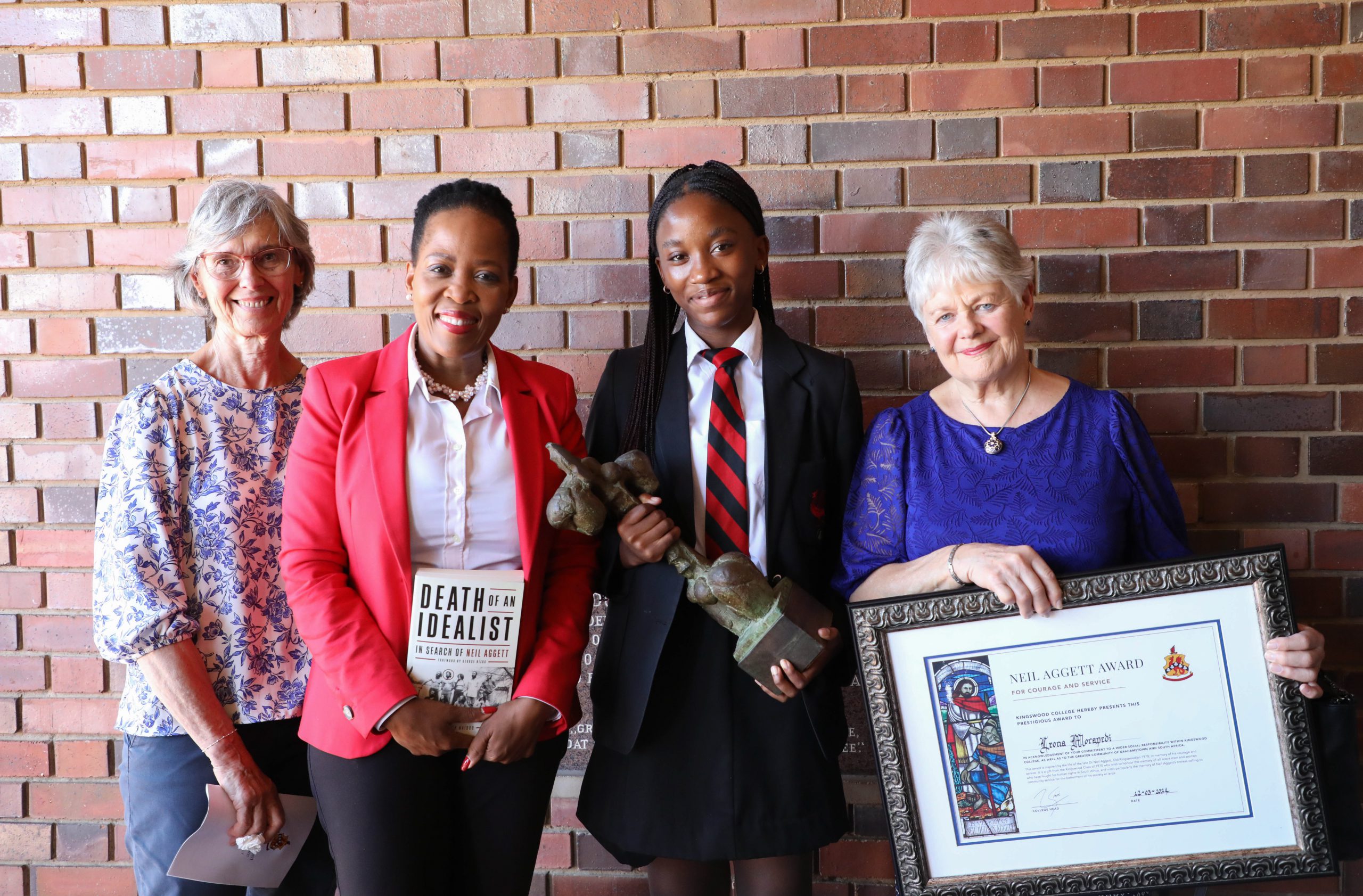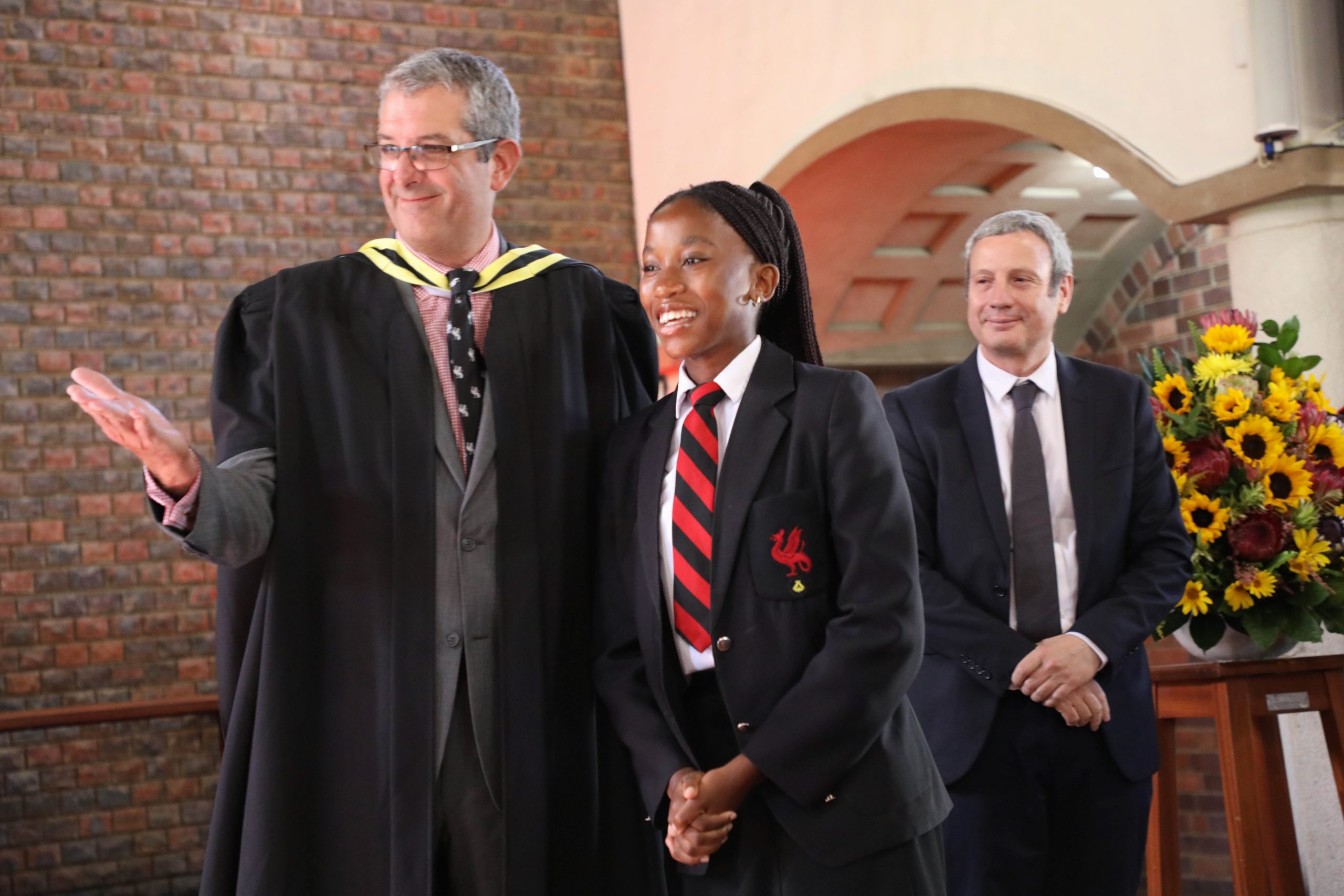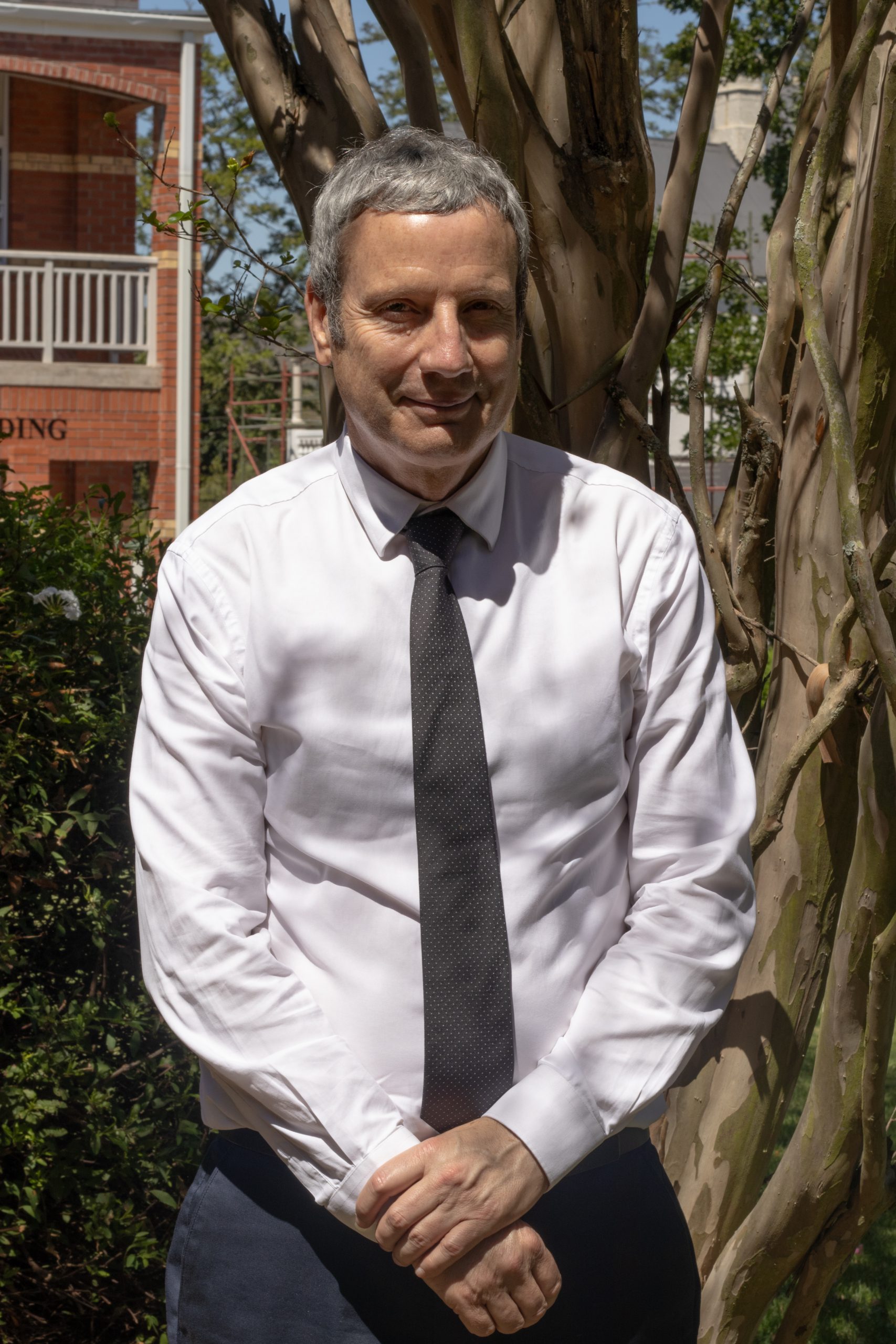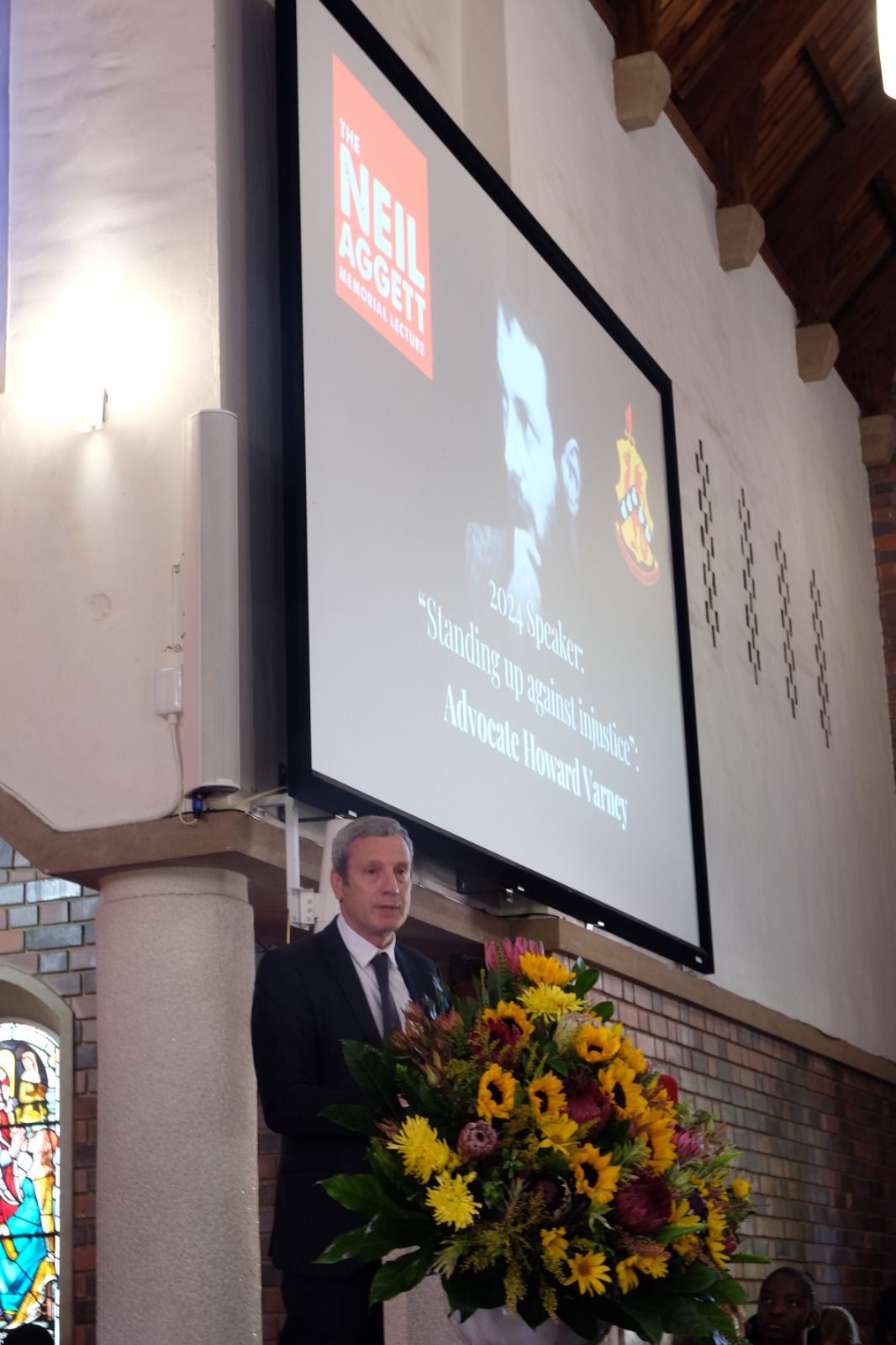By Rikie Lai
The ANC government has taken active measures to scupper prosecutions against the perpetrators of heinous apartheid-era crimes, including the murder of human rights activist Neil Aggett.
This was part of the extraordinary narrative relayed by Advocate Howard Varney to a packed audience at Kingswood College on Wednesday, 12 March, for the 2024 Neil Aggett Memorial Lecture. Parts of his meticulously detailed address were covered by an SABC report.
“Frankly, it is scandalous that hundreds of murder cases as well as the worst known crimes were allowed to be suppressed,” Varney said.
Varney represented the families of anti-apartheid activists Neil Aggett, Ahmed Timol and others in the reopened inquests into their deaths in detention. The 2022 inquest found Aggett did not commit suicide while in Security Branch custody but died at the hands of his captors in February *1982. At the time of his death, Aggett, a medical doctor, trade unionist and activist, had been in Security Branch detention for two months. He was found hanged in his cell at the John Vorster Square police station.
Speaking to Grocott’s Mail after the lecture, Varney said,” It really is quite unforgivable that the post-apartheid state has allowed serious apartheid crimes to fall into neglect and become something of a festering wound for families, survivors’ communities and the nation as a whole that we haven’t reached the closure we should have by now.”
“On the face of it, you would have thought that prosecuting these cases would have been a priority for the ANC government. After all, most of them deal with people who gave their lives for our democracy and enshrined freedoms. It is disturbing that not only did they not do so but took active measures to ensure that prosecutions didn’t happen,” Varney said.
Varney said South Africa had failed to live up to what we had enshrined in the Truth and Reconciliation Act and our Constitution.
But why?
Varney said that there was a theory that the old generals of the apartheid-era security apparatus had threatened to bring private prosecution of ANC comrades to court.
“We are aware that those in the apartheid-era security apparatus were keen to ensure that their people were protected in this way. It appears to us that the ANC was motivated by the desire to protect their own people. So, there was a concurrence of interests from both sides.”
“At the end of the conditional amnesties of the TRC there was an expectation of the ANC government that where there was evidence, and families and communities wanted to see justice in serious cases, something would happen.
“Under the law, they were obliged to act, but they didn’t want their comrades to be held accountable in a public court of law. They had to demonstrate that the rule of law had to be complied with but ensured that some escaped justice.
“When the NPA asked for investigators, they were flatly refused. There was a sentiment that these cases should not be touched.”
Over 7,000 applied for amnesty under the TRC, and just 700 were granted amnesty. The majority of perpetrators stayed away – especially senior perpetrators. Many families have been waiting for something to happen – knocking their heads against brick walls.
The Neil Aggett lecture honours Neil Aggett’s legacy and those who gave their lives for social justice and human rights in South Africa.

The Neil Aggett Award
Before the lecture, the school’s esteemed Neil Aggett Award was presented to pupil Leona Morapedi in the presence of her mother, Lerato, who surprised her daughter by travelling from Botswana for the momentous occasion.
The Neil Aggett Award honours a pupil whose spirit fosters ideas of individual service above self, stands for social justice and demonstrates a commitment to social responsibility at Kingswood, in Makhanda and in South Africa.
In his citation for this year’s award, David Wright said, “Leona is embodying these qualities; she mirrors the late Neil Aggett and continues to significantly impact those around her.”
The award was gifted to Kingswood College by the class of 1970, who matriculated with Aggett.

Advocate Varney
Varney has a lifetime of achievement in the battle to deliver social justice, truth, and reconciliation. As a consultant for the International Centre for Transitional Justice (ICTJ), he has assisted in developing transitional justice in several African countries and around the world. In Sierra Leone, he was the chief investigator for their own truth and reconciliation commission.
He said he was enormously honoured to be invited: “It is a wonderful tradition that the school has had with this memorial lecture.”
Varney said he was delighted by the special guests attending his lecture, including Aggett’s sister, Jill Burger, and sister-in-law, Mavis Aggett.
Varney said that Aggett’s partner, Dr Elizabeth Floyd, was detained with Aggett and interrogated. She testified in a Truth and Reconciliation Commission hearing in 1996 and called on Neil’s interrogators to disclose the truth. They never did.
The TRC allowed full amnesty from any charges provided they spoke the truth.
Consequences were expected by the public and families of these victims, all of whom were given fabricated stories in explanation for the death of their loved ones.
Varney also highlighted the families of the Cradock Four, the Pebco Three, the Highgate Massacre and others who continued to live through their trauma.
When Varney returned from Sierra Leone in 2005, he collaborated with the Foundation of Human Rights, Yasmine Sooka and others in attempts to try to facilitate apartheid-era cases with regular meetings with authorities such as the National Prosecution Authority (NPA), beginning with the Nokuthula Simelane case.
The Simelanes went to court in 2015, opening the doors for numerous other families to secure inquests into the cases which have traumatised their families’ lives. They were assisted by former South African Police officer Frank Dutton, who uncovered new evidence and leads in cases such as the Ahmed Timol and Aggett cases.
This prompted Varney to contact families of these cases to advise reopening and seeking justice for their families.
Varney said the timeframe of these cases was a “race against time”. Many suspects have already died. But, many continue to live freely without taking accountability for their crimes.
“These cases should be followed to their logical conclusion no matter how long it takes,” Varney said.
“We owe it to those who fought for our liberation, we owe it to the families, we owe it to South Africa. We need to understand our past, and only by doing so can we hope to build a stronger future.”

*Editor’s note: GM initially published that Aggett died at the hands of his captors in February 1992; the correct date is 1982. We apologise for the error in publication.


